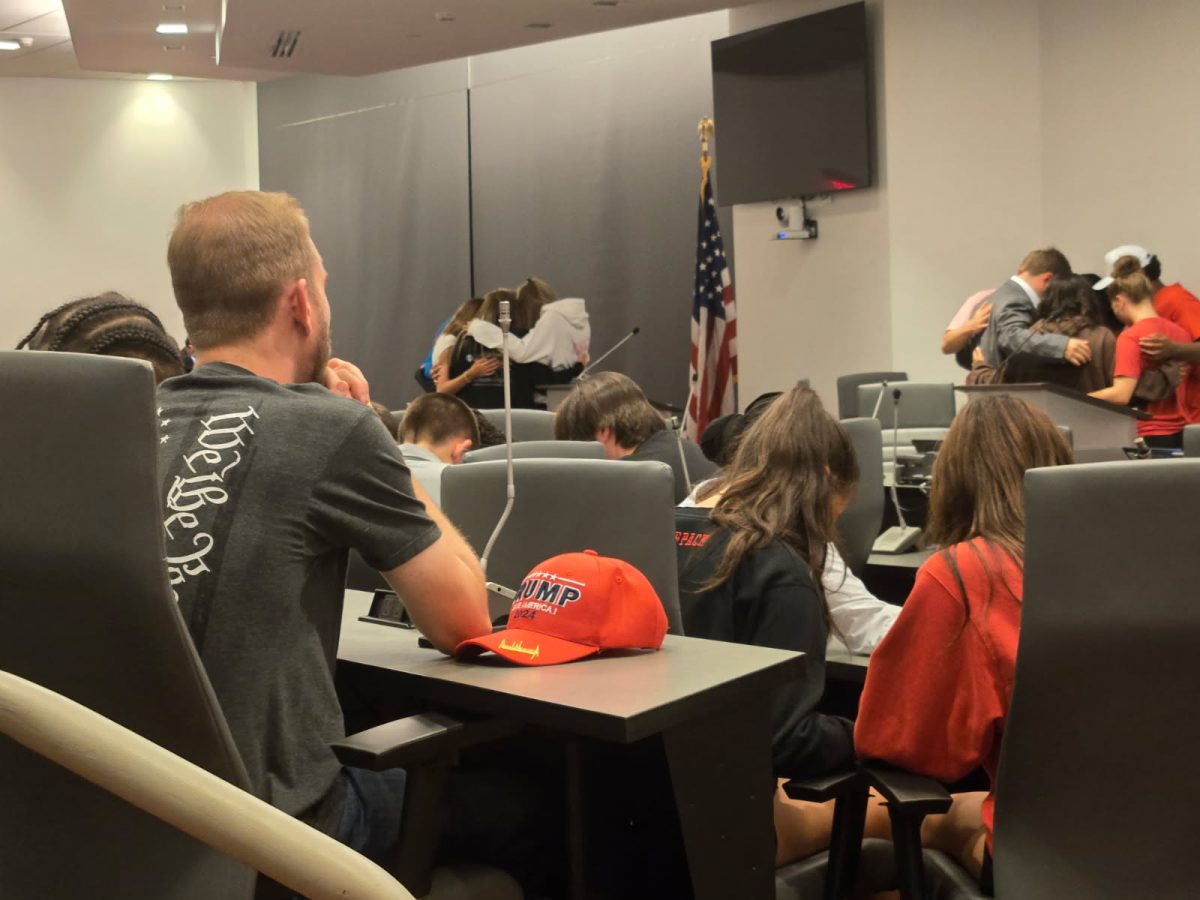“Yesterday kicked off a three-day global climate symposium called Global Climate Change: Interdisciplinary Responses. As the invitation said, “everyone is warmly invited (no pun intended).”
In the wake of a report from the Intergovernmental Panel on Climate Change that global warming is indeed a human-made problem, and that immediate and drastic action may be needed to avoid disaster, this symposium looks to address and shed light on global warming.
Elizabeth Kolbert talked to students and faculty at the Campus Cinema Monday night about her book, Field Notes from a Catastrophe: Man, Nature, and Climate , which has been hailed as “the perfect primer on global warming.”
Kolbert’s book combined a three-part series she wrote for The New Yorker in which she documented not only her travels across the world, but also her conversations with scientists and politicians on global warming.
Kolbert started the project over the confusion she felt on global warming.
“I was motivated by my own inability to figure out what was going on by reading the news coverage about climate change. Every story seemed to present conflicting information,” she said.
“It seemed to me if it really was such a large potential problem, then people really ought to be given the facts in a way that lets them make sense of them. So that’s what I set out to do.”
Kolbert talked about the areas that were most drastically being affected: the poles.
“I encountered a lot of troubling evidence. One encounter that was particularly vivid was a conversation I had with a pair of native Greenlanders,” she said. “They told me that the bay the town sits on used to freeze over for five or six months every year. But in recent years, the bay hasn’t frozen at all. They were just astonished by how quickly their world was changing.”
Students and faculty packed Campus Cinema to hear Kolbert’s story. People from UNC-Chapel Hill also came to participate in the symposium. Professor Greg Gangi at UNC encouraged his students to attend one of the many events this week.
“We are going to be addressing this issue in class and I thought that since NCSU has put together such a great lineup for this symposium I would like to encourage my students to attend,” Gangi said. “Furthermore, this issue is without a doubt the most serious environmental issue facing humanity, so this symposium also provides my students with a unique opportunity to expand their knowledge of a vital issue.”
Leslie Hankins, sophomore at UNC, said, “Our environmental studies class at UNC was promoting the three-day event. We thought it sounded interesting and we just decided to come.”
The symposium will continue today with a panel of experts moderated by Rick Kearney, director of N.C. State’s School of Public and International Affairs, at 4 p.m. in Talley Ballroom. The panel will consist of Elizabeth Bast, International Policy Analyst for Friends of the Earth in Washington, D.C., Andrew Jorgenson from the Department of Sociology at Washington State University and Chris Russill from the Department of Rhetoric at University of Minnesota.
Elizabeth Bast is the author of Climate Justice in Africa : a look at how Africa is the continent which has contributed least to global warming, but may receive the most extreme effects in the long run. Already intense heat waves, droughts and floods caused by climate change harm Africa and there is still the possibility of catastrophic climate change-related disease in the future.
Bast also raises the point that the U.S., which is responsible for nearly 25 percent of polluting emissions, along with other high-polluting countries, must act quickly to elevate the problem in Africa.
Andrew Jorgenson, the author of Outsourcing Pollution: How the Transnational Organization of Production Contributes to Greenhouse Gas Emissions in Less-Developed Countries , will also be a part of the panel tomorrow in Talley Ballroom at 4 p.m. In his book, Jorgenson takes what is known in the social sciences on population, production and greenhouse gas emissions and expands on it.
A key point he focuses on is how transnational manufacturing firms export more pollution causing activities from developed countries to underdeveloped countries.
The third participant in the panel today will be Chris Russill, author of Tipping Point Forewarnings of Climate Crisis: Implications of an Emerging Trend . A “tipping point” is a critical situation requiring immediate action and attention. Russill says that nowhere is this more evident than in the public discussion on global warming.
After the forum tonight there will be an environmental themed concert at 7 p.m. in the Talley Ballroom.
The final day of the symposium will be held on Wednesday from 3 – 5 p.m. at Campus Cinema and will feature a panel lead by David Archer, author of more than 65 scientific journals and of a new book titled Global Warming: Understanding the Forecast .
Other panelists will include faculty members from N.C. State’s Department of Marine, Earth and Atmospheric Sciences. During the forum, Archer and N.C. State faculty will attempt to explain what exactly global warming is to those of us who aren’t meteorologists. Archer stresses the importance of addressing global climate change quickly.
“No country is an island, not even the United States,” Archer said. “So if there are large disturbances or displacements of people elsewhere in the world, say by a rising sea level encroaching on the Yangtze River delta in China, the impacts will be felt here.”
This week’s symposium on global climate change has already brought out many curious students and faculty and should continue to do so within the next two days.
“I’m very interested in these topics,” Edward Peebles-Maxwell, junior in meteorology, said. “I just want to hear where everyone is coming from.”




